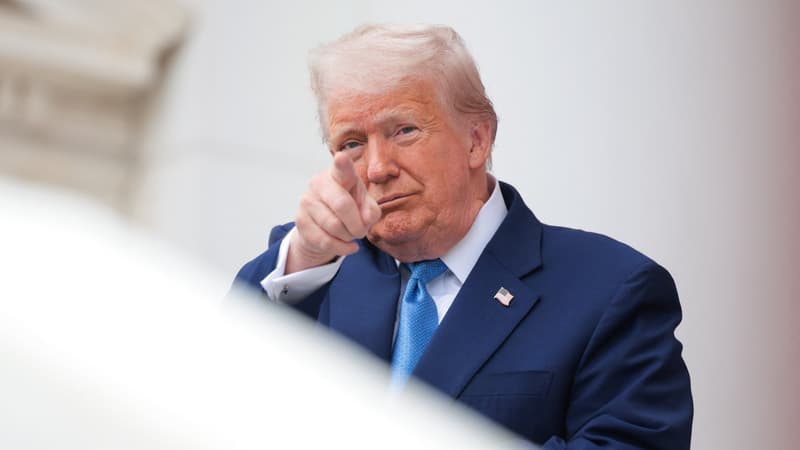Donald Trump is preparing his answer. After Wednesday of the United States International Commercial Court on Wednesday to block customs duties imposed by the US President, the White House is working on a B Plan.
If an appeal court granted the Republican President a respite by suspending the first instance decision, it is only to govern the substance of the case. Before possibly the Supreme Court is led to decide. In summary, the stay that looms over customs surcharges currently in force has not yet risen.
According to the Wall Street Journal, the Trump administration is already preparing an alternative plan to anticipate any judicial decision confirming that the US president could not invoke an “emergency” situation to impose his customs duties in the world. Among the planned options, the use of article 122 of the 1974 Commerce Law.
15% customs tasks for 150 days
This article establishes that to “deal with significant and serious deficits of the United States payments,” the president may decide to establish a surcharge for import “that does not exceed 15% (in addition to the taxes already necessary) in the products imported in the United States.”
However, this provision is limited over time since it cannot be applied more than 150 days. This would allow time to the White House to confiscate article 301 of the same law that would allow Donald Trump quickly launching surveys on commercial practices considered unfair and, therefore, applying new customs rights individualized to interested countries.
It would probably take several months, but the strategy seems more legally stronger than the initially used. Especially because this article has already been used several times in the past, especially during Trump’s first mandate, when he had established customs surcharges against China.
The decision was not made
When asked about the possibility of invoking these two articles in case of an unfavorable justice decision, Peter Navarro, economic advisor of Donald Trump, confirmed that “it is the type of reflections” that is currently encouraging the White House. He also suggested the use of (never used) of a law of 1930, which allows to impose customs tariffs of up to 50% in imports of countries with a commercial policy considered discriminatory against the United States.
Another option mentioned this time by Goldman Sachs analysts would be to use article 232 of the Commerce Law. It is this article that was used to impose customs duties in specific sectors such as steel, aluminum and car. Customs rights that are not affected by the judicial decision of the International Commercial Court of the United States. The Trump administration could decide to use it again to extend the surcharge to other sectors.
The Wall Street Journal says, however, that the White House is not privileged at this stage. In fact, revealing an alternative plan before Justice even issued its final verdict on the legality of customs “Customs” Reciprocal “would be equivalent to recognizing the fragility of a legal point of view of the use of the 1977 Economic Emergency Law to establish them.
Source: BFM TV


